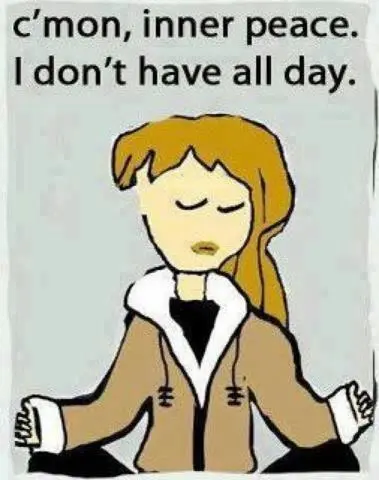The Myth of the Relaxed Woman
(And My Path to Becoming Her)
I recently read a passage by Nicola Jane Hobbs that struck me deeply:
“Growing up, I never knew a relaxed woman.”
Wow. I immediately thought of my mom. She loved reading and would enjoy her book each night before bed. But was she truly relaxed? Looking back, I realize that by the time she got to that book, she had already given everything she had—working as a nurse, cooking and cleaning, driving us around, volunteering, sports and fitness. Her worrying was persistent and often pernicious. She and my dad enjoyed their nights out together, but there was no time for meditation, no moments spent simply sitting on the grass, listening to the crickets.
So many of my friends relate to this—the nonstop movement, the to-do lists, the need to be everything to everyone. I relate, too. When we finally learned to meditate, it wasn’t intuitive; it had to be practiced, scheduled, and studied. I think of a meme Dr.Tracey Meyers shared during a Mindfulness-Based Stress Reduction course. It showed a woman sitting cross-legged in perfect meditation mode, eyes closed. Above her, the words read:
“C’mon, inner peace, I don’t have all day.”
YUP.
I originally wrote a version of this post a few years ago when I was just beginning this new evolution—this transition into the person I desired to become. My days are still full, and I could always use more stillness, but I have worked diligently to integrate mindfulness into my life. Now, I move through the world more authentically.
I do wish I had understood these things when my children were younger—that I had approached parenting and family life with a deeper sense of presence. But the past is for learning, not regret. My evolution reminds me that it’s never too late to grow, to change, to find happiness. And sometimes, that growth isn’t spoken—it’s simply embodied in how we move through life.
With these revelations, I feel more confident and more trusting of myself. This shift completes the cycle of living with greater ease and mindfulness. My meditation practice still takes time and devotion, but this effort has manifested in a calmer daily life.
My mother spent her final years battling dementia. It was painful to watch, seeing her drift away. But we also noticed something unexpected—a part of her was freed. She was no longer burdened by the rules she and society had set for her. She could only focus on one thing: what was right in front of her. Not what had just happened. Not what was coming next. That realization changed something in me.
I now work to bust the myth of the relaxed woman and make it a reality. Being relaxed doesn’t mean being inactive—it means being free from tension, living in peace, and moving through life with presence.
I continue to learn from my mother. Some lessons she taught me years ago, and I wasn’t ready to receive them. But I hear them now. So, for the next few days, I will keep this thought close: slow down, take a breath, and wait a beat. Because in that pause, I just might find ease.
What do you do to you keep your pace of life manageable?
